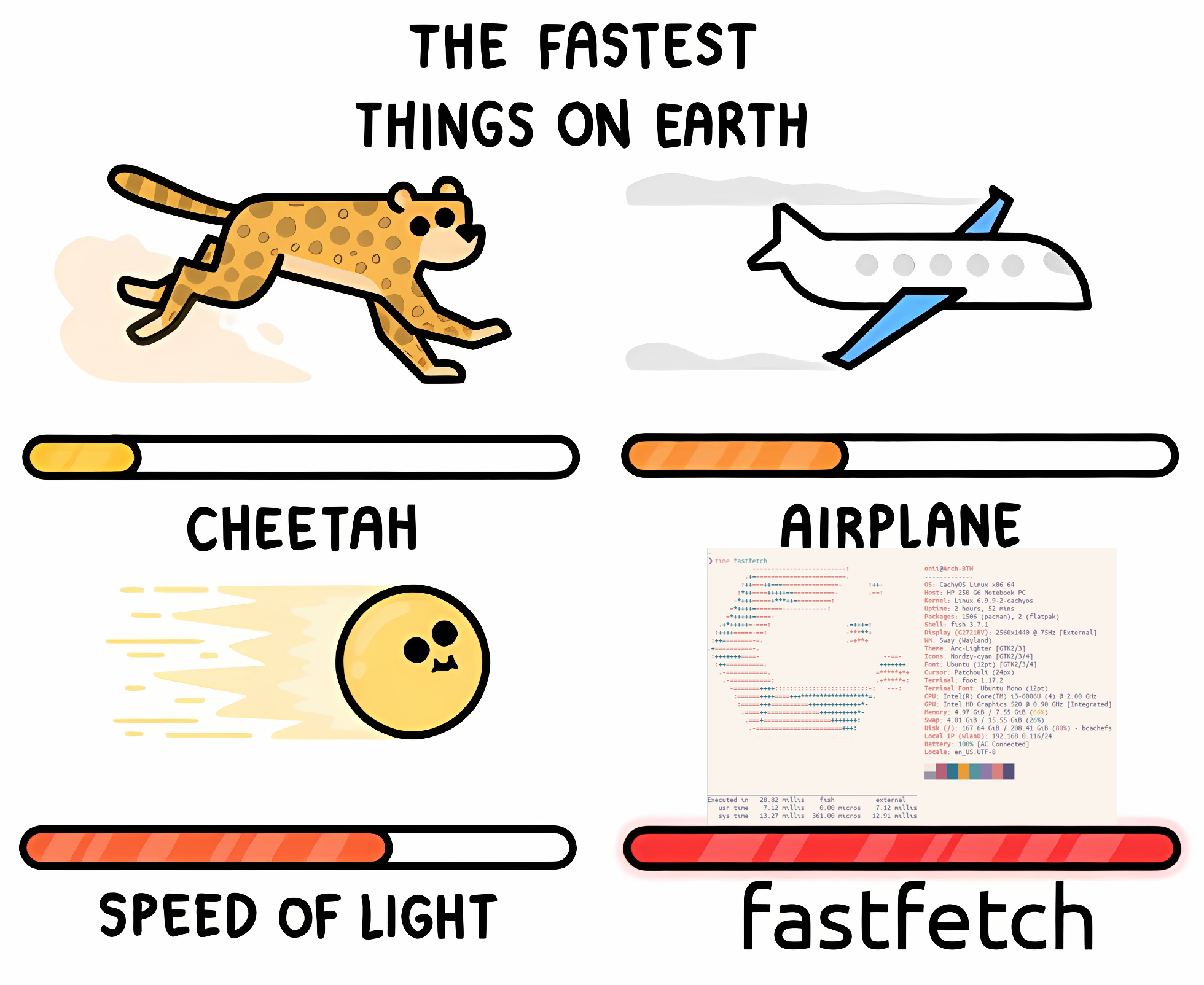this post was submitted on 14 Jul 2024
487 points (96.9% liked)
linuxmemes
24633 readers
840 users here now
Hint: :q!
Sister communities:
Community rules (click to expand)
1. Follow the site-wide rules
- Instance-wide TOS: https://legal.lemmy.world/tos/
- Lemmy code of conduct: https://join-lemmy.org/docs/code_of_conduct.html
2. Be civil
3. Post Linux-related content
sudo in Windows.4. No recent reposts
5. 🇬🇧 Language/язык/Sprache
6. (NEW!) Regarding public figures
We all have our opinions, and certain public figures can be divisive. Keep in mind that this is a community for memes and light-hearted fun, not for airing grievances or leveling accusations.Please report posts and comments that break these rules!
Important: never execute code or follow advice that you don't understand or can't verify, especially here. The word of the day is credibility. This is a meme community -- even the most helpful comments might just be shitposts that can damage your system. Be aware, be smart, don't remove France.
founded 2 years ago
MODERATORS
you are viewing a single comment's thread
view the rest of the comments
view the rest of the comments

That's because it's not relevant. Speed can be compensated for either by caching or outsourcing your load, if there's such a huge need to process large amount of data quickly. In day to day work I can't say I have ever ran into issues because code was executing slow. Normal operation Python is more than capable of keeping up.
On the other side of the coin you have memory management, buff and stack overflows and general issues almost exclusive to C, which is something you don't have to worry about as much with higher level languages. Development with Python is simply faster and safer. We as developers have different tools, and we should use them for their appropriate purpose. You can drive nails with a rock as well, but you generally don't see carpenters doing this all day.
You can sometimes deal with performance issues by caching, if you want to trade one hard problem for another (cache invalidation). There's plenty of cases where that's not a solution though. I recently had a 1ns time budget on a change. That kind of optimization is fun/impossible to do in Python and straightforward to accomplish Rust or C/C++ once you've set up your measurements.
Don't throw the baby out with the bath water. There are many applications that don't have performance needs such as a calculator app
You can find plenty of people complaining online about the startup time of the windows and gnome (snap) calculators. The problem in those cases isn't solved by compiled languages, but it illustrates that it's important to consider performance even for things like calculator apps.
Which is exactly what I said. Most of the times you can work around it. Sure cache invalidation can be hard, but doesn't have to be. If you need performance use more performant language. Right tool for the job.
Especially since languages such as Python and JavaScript are really good a event programing where you have an event that runs a function. Most of the CPU time is idling anyway.